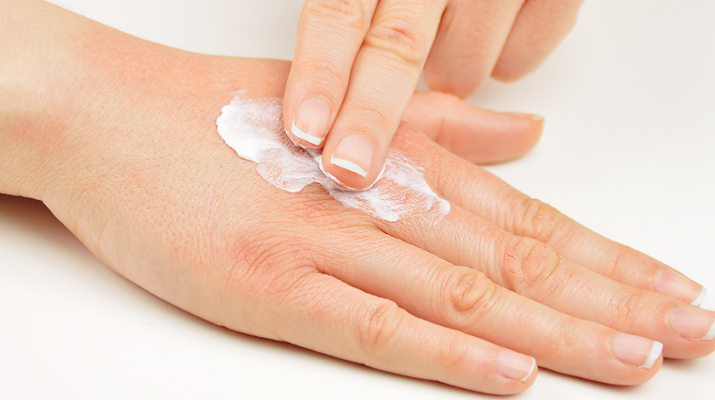By Deborah Jeanne Sergeant
 It’s chapped skin time. But you don’t have to endure flaky, red, irritated skin this winter. Local experts offer a few tips for avoiding chapped skin.
It’s chapped skin time. But you don’t have to endure flaky, red, irritated skin this winter. Local experts offer a few tips for avoiding chapped skin.
The most important means of staying smooth is moisturizing, but you have to select the right product.
“Something that smells pretty and is perfumed isn’t going to functionally moisturize you the same way for someone with a skin problem,” said Elizabeth Arthur, dermatologist at Helendale Dermatology in Rochester.
Lotion is too thin. Arthur likes Cetaphil and CeraVe, available over-the-counter, and Avene by prescription.
Cream and ointment-type of products work better than using standard lotion, baby oil, coconut oil or olive oil.
“Some people swear by these, but they have limitations based on the molecule size as to whether it will moisturize or leave your skin dry 10 hours later,” Arthur said.
She said that shea butter products, as long as no artificial scents are added, also moisturize well.
Applying products before bed and after hand washing helps restore moisture; however, people who wash and use hand sanitizer often, such as those in health care and food service, will need to remain vigilant with moisturizing.
“It’s not washing our hands that’s problem,” Arthur said. “Soap is often a problem.”
Fragrant or deodorant soaps can further dry and irritate chapped skin. Arthur recommends milk, unscented soap.
Long, hot showers can also dry skin. Though cold showers are hardly welcome in winter, moisturizing afterward can mitigate its effect.
“You seal that water in and that’s the best time to do it,” Arthur said. “If that’s not convenient, I’ll take any other time of the day for moisturizing. The biggest thing is establishing a routine. You have to find what works for you and for your time.”
She also keeps hand cream near her bed to remind her to apply some before she goes to sleep. Many find that keeping moisturizer near the sink, in their bags and on their desks, keeps it handy all the time.
Some people apply heavy moisturizer and then don gloves before bed; however, if the gloves cause their hands to sweat in the night, that can aggravate skin problems, so use lightweight cotton gloves. These are available in the skin care aisle.
Plan ahead for housework. Most household cleaners can dry out hands, as can dishwashing, so wear latex gloves.
“If you can’t wear gloves, wash afterwards with a mild soap and lukewarm water, and put on that good moisturizer afterwards,” Arthur said.
Using milder, more natural cleaners can also help prevent drying.
Keeping skin covered while outdoors aids in retaining moisture in the skin, so don gloves each outing – no matter how brief – and wear a scarf around the face for prolonged exposure, such as for a day of sledding.
Elise DeLuke, dermatologist with DeLuke Dermatology in Amherst, near Buffalo, recommends using a humidifier to help improve skin condition.
“People get dry skin because there’s no humidity in the air,” she said. “Drink plenty of water, too.”
Try a vitamin E supplement to help support healthy skin.

